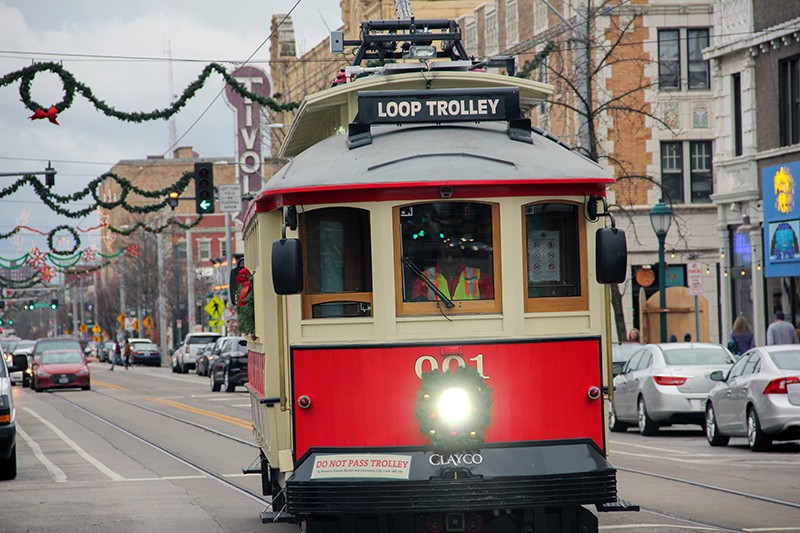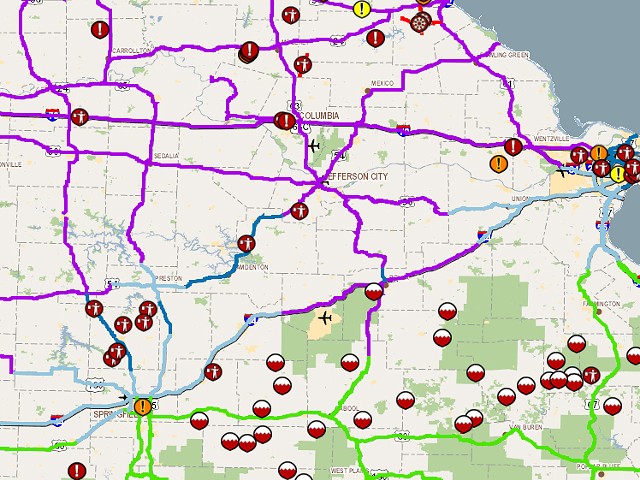Bi-State to Revive Delmar Loop Trolley
The returning Delmar Trolley is just too expensive to fail
[
{
"name": "GPT - Leaderboard - Inline - Content",
"component": "41932919",
"insertPoint": "5th",
"startingPoint": "3",
"requiredCountToDisplay": "3",
"maxInsertions": 100
}
]
Universally acknowledged as a failure, the Delmar Loop Trolley is nevertheless being thrown a lifeline amid warnings that failing to revive it will imperil the region's ability to secure federal funds for actually usable transportation services.
On Friday, the board of the Bi-State Development Agency voted to take over a trolley project. While it's not clear when trolley operations would restart, the vote signals yet another chapter for a venture that cost more than $50 million in state and federal tax dollars to build, only to generate a paltry $32,000 in ticket sales in its first year before breaking down on its final day on December 29, 2019.
Prior to the vote, Bi-State CEO Taulby Roach stressed that the proposal would rely on money generated by the trolley's taxing district, not from Bi-State, though the agency would still use its own drivers and mechanics to keep it running.
"Some of the things that hampered the trolley project, I do think that we have some of the expertise to help it," Roach said. "But I'm not going to say that it is a super sound project. It's track record speaks for itself."
Indeed, the Loop Trolley's 2.2 miles of track trace a route that began with years of promises and resulted in sustained frustration. The construction of the tracks themselves disrupted traffic and business on the Loop for years, and the trolley cars' operations only made things worse, mangling car doors, injuring cyclists and racking up mechanical problems.
Roach addressed the trolley's problems, but argued that Bi-State has the resources and sophisticated equipment to ensure the trolley's wheels fit the track, a problem he called, "the Achilles' heel of the trolley."
However, the more pressing trolley problem isn't mechanical, but federal: Because the project was completed with federal money, Roach warned the commissioners that the region risks having a default on its books when it applies for additional funding with the Federal Transit Authority, which previously threatened to claw back the trolley funds unless the system gets back to speed.
During Friday's meeting, Roach noted that Bi-State is "dependent on the long-term funding through the federal government," and that the agency is simultaneously seeking federal funds for 120 transit vehicles.
Running the trolley, then, is necessary even though there was hardly public demand for it while it existed. Roach said Bi-State was not locking itself to running the trolley forever, but only for "a three-year period to start, to make sure we can get the assets running," and even then, "We'd cut this down to four days a week, and try to run it at a minimum, so we'd fulfill the federal requirement to use these assets."
Roach acknowledged that while Bi-State wouldn't be using its own money to fund the trolley, its available drivers and mechanics are already stretched thin and that customers are struggling to adapt to fewer routes amid pandemic pressures.
On the other hand, he said, letting the trolley stay dead would be even worse.
"A default on the region... that will devastate services for those same customers," he argued. "I'm trying to create a long-term vision. This is a very tough project. I am gritting my teeth like everyone else."
Follow Danny Wicentowski on Twitter at @D_Towski. E-mail the author at [email protected]






